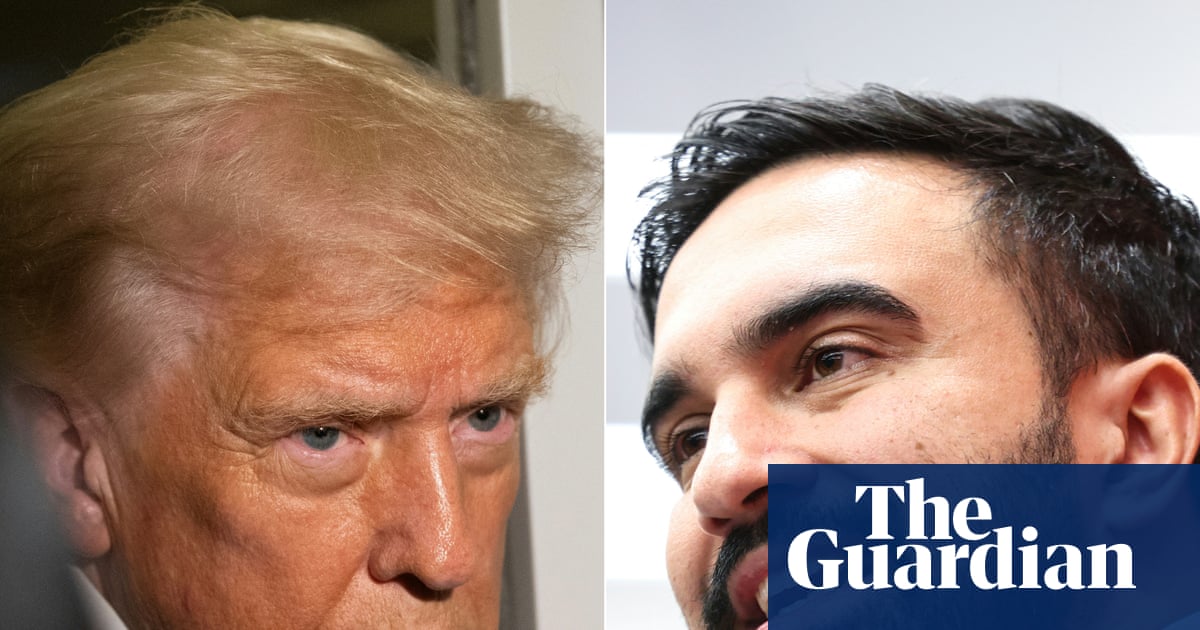Robert F. Kennedy Jr.’s tenure as health secretary is straining Republicans’ relationship with the medical establishment to what’s looking like a breaking point.
Doctors and their professional associations, such as the American Medical Association and American Academy of Pediatrics, have clashed with the GOP over health policy changes, but Kennedy has given them a leftward shove by deriding them as pharma flunkeys and progressive ideologues. In recent months, Kennedy has sparred with the groups over vaccine guidance, transgender care, the handling of the pandemic and whether pregnant women are putting their children at risk of autism if they take Tylenol.
The groups have long been considered nonpartisan and have many conservative members. But Republicans in Congress are piling on, potentially risking the medical profession’s evolution into a Democratic-leaning interest group. In turn, that would winnow doctors’ influence on policy issues when Republicans are in power, and prompt big shifts in public health guidance when Democrats are.
Some GOP lawmakers say it’s the doctors that lost them as they moved left. “We kind of have a crisis of credibility,” Sen. John Cornyn (R-Texas) said of physician leaders in the health care establishment. Kennedy, he added, “is a product of that distrust. He is a reaction to what many people feel, that they were being ignored.”
Kennedy’s broadsides — including his deliberation over limiting the AMA’s role in determining what Medicare pays doctors — have forced the leaders of physician societies to negotiate between an unfriendly government and many of their own members, who have demanded greater resistance to Kennedy’s plans to overhaul the public health system.
Their criticisms of the health secretary have signaled to the public strong disagreement with Kennedy’s policies and widened the split with Republicans on Capitol Hill.
The most telling example is Sen. Bill Cassidy (R-La.), a liver doctor and the chair of the Senate health committee.
He’s been a leading GOP critic of Kennedy and a friend to physician interests. But he recently condemned the AMA for its support of gender-affirming care. This month, he also demanded that the group report revenues from its coding system, suggesting he might seek to upend a medical billing standard that brings in a big chunk of the group’s $500 million in annual revenue. In a letter to AMA President Bobby Mukkamala, Cassidy called the group “anti-science” and “anti-patient.”
“When people know that there’s scrutiny, they sometimes behave differently,” Cassidy told POLITICO in explaining why he confronted the AMA. The AMA has said it will respond to the senator’s request.
The AMA declined to comment for this story. The group, which represents more doctors than any other physician group, has said its positions are rooted in science and the consensus of America’s doctors.
The AMA and many groups representing physician specialists have repeatedly called out Kennedy this year, criticizing him for revamping an outside panel of vaccine experts, for deemphasizing Covid vaccination, and for the firing of the director of the Centers for Disease Control and Prevention in August. Many medical societies have dismissed Republican accusations that they are unduly influenced by drug companies and instead accused the administration of advancing pseudoscience.
In contrast with many rank-and-file AMA members, the group’s leaders have repeatedly stressed the need to work with Kennedy. At a summit put on by the medical news website Stat this month, Mukkamala said he finds “total alignment” with the administration on some policy issues.
The American Academy of Pediatrics sued Kennedy in July for what it argues are unlawful changes to Covid vaccine guidance. The government is no longer recommending anyone get the shots, though they remain available. Mark Del Monte, the AAP CEO, said in a statement that federal health officials are sowing “confusion and chaos” over what’s best for children’s health.
“Families know they can rely on the AAP for guidance rooted in the best available evidence, not politics,” he said.
The American Academy of Family Physicians, which has also protested Kennedy’s vaccine guidance, said in a statement that its “bipartisan” work champions policies that “support a robust workforce and strengthen the physician patient relationship.”
Several associations, including groups that represent public health experts, internists and immunologists, have called on Kennedy to resign.
Still, Republican officials in the states have backed Kennedy on the Covid vaccines.
After the Texas Medical Association, the largest state physician group, told doctors there they could consider sources other than the CDC for vaccine guidance, Texas Attorney General Ken Paxton called the association’s advice a “brazen, flawed shift.”
Besides condemning the pediatricians for offering their own vaccine guidance, Kennedy targeted the AMA in a report earlier this year on the problem of chronic disease among children. He criticized the group for adopting a policy recommending that licensing boards take disciplinary action against physicians who spread misinformation, an issue that became heated during the pandemic when some sought to punish doctors who prescribed off-label treatments like ivermectin and hydroxychloroquine for Covid.
Punishing doctors for deviating from government guidance “discourages practitioners from conducting or discussing nuanced risk-benefit analyses that deviate from official guidelines — even when those analyses may be clinically appropriate,” the report said.
Meanwhile, on Capitol Hill, GOP doctors such as Sens. Rand Paul of Kentucky and Roger Marshall of Kansas have become Kennedy’s most vociferous defenders in his battle with their professional colleagues.
“Many of these doctor associations are run by liberals,” Marshall, an OB/GYN who has had a fraught relationship with the groups, told POLITICO. “They’re run by people that failed being real doctors.”
Bernie Sanders (I-Vt.), the ranking member on the Senate health committee, confronted Kennedy at a hearing in September, accusing him of turning patients against their doctors by attacking physician groups. Kennedy heaped on more criticism.
“The American Heart Association has been co-opted by the food industry,” he replied. The AHA, which is led by cardiologists among others, rejected his claim.
Trust your doctor, not the doctors
There’s a nuance in Kennedy and the Republican lawmakers’ messaging when it comes to doctors.
While they have cast doubt on the trustworthiness of the doctor groups, they’ve continued to advise Americans to consult their own doctors.
Many public health advocates feared Kennedy would deny Americans access to vaccines — Kennedy was an anti-vaccine activist before joining forces with Trump and has suggested vaccines cause autism — but he has instead recommended Americans talk with their doctors before getting them.
Joel White, a health care lobbyist and a partner at Monument Advocacy, explained this dissonance.
“You’re tapping into some of the psychology around Congress, right? Everyone hates Congress, but they love their congressman. Like, ‘I hate the medical profession, but I love my doctor,’” White said.
Americans tend to agree, at least on the latter. An October poll conducted by The Washington Post and KFF, a health care think tank, found that 85 percent of parents trust their child’s pediatrician on vaccines.
Cornyn, despite his view that the medical establishment finds itself in a “crisis of credibility,” told POLITICO later that he believed that a personal doctor remains “the best person to provide that counsel and advice.”
Marshall, who has at times both cited and criticized doctors’ groups, said that for all his “animosity” he still has “an immense amount of trust in the doctors out there.”

 German (DE)
German (DE)  English (US)
English (US)  Spanish (ES)
Spanish (ES)  French (FR)
French (FR)  Hindi (IN)
Hindi (IN)  Italian (IT)
Italian (IT)  Russian (RU)
Russian (RU) 























Comments